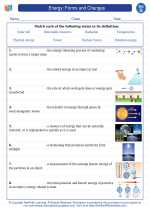Energy: Forms and Changes -> subatomic
Subatomic Particles
Subatomic particles are the particles that make up an atom. There are three main subatomic particles: protons, neutrons, and electrons. These particles are the building blocks of matter and play a crucial role in the structure and behavior of atoms.
Protons
Protons are positively charged particles found in the nucleus of an atom. They have a relative mass of 1 and a charge of +1.
Neutrons
Neutrons are neutral particles found in the nucleus of an atom. They have a relative mass of 1 and no charge (neutral).
Electrons
Electrons are negatively charged particles that orbit the nucleus of an atom in specific energy levels or shells. They have a relative mass of nearly 0 and a charge of -1.
Study Guide for Subatomic Particles
- What are the three main subatomic particles?
- Where are protons located?
- What is the charge of an electron?
- Which subatomic particle has no charge?
- What is the relative mass of a neutron?
Understanding subatomic particles is essential for comprehending the structure of atoms and the behavior of matter at the atomic level. Mastering the properties and roles of protons, neutrons, and electrons is fundamental to understanding the foundations of chemistry and physics.
.◂Science Worksheets and Study Guides Seventh Grade. Energy: Forms and Changes
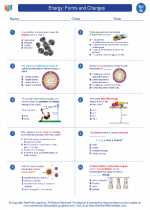
 Worksheet/Answer key
Worksheet/Answer key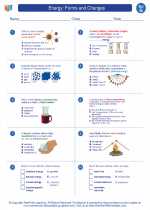
 Worksheet/Answer key
Worksheet/Answer key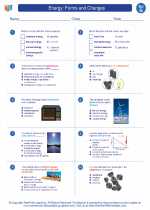
 Vocabulary/Answer key
Vocabulary/Answer key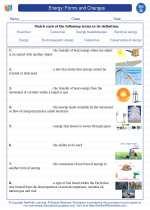
 Vocabulary/Answer key
Vocabulary/Answer key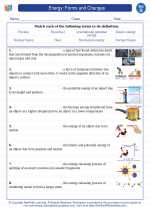
 Vocabulary/Answer key
Vocabulary/Answer key